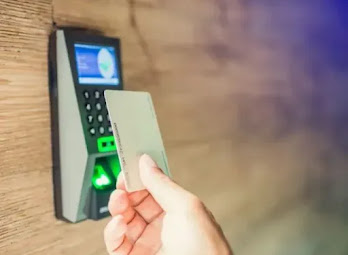What is access control system
According to established guidelines and norms, an access control system is a security system that controls or permits access to tangible or digital resources. It is made to ensure that only parties with the proper authorization can access a given space, object, or piece of information.
Office buildings, data centers, medical facilities, educational institutions, and public structures are just a few of the places where access control systems might be implemented. Badge readers, biometric scanners, keypad locks, and smart cards are a few popular access control system examples.
These systems often include software components like authentication protocols, access control guidelines, and monitoring tools in addition to hardware components like sensors, controllers, and locks. entry control systems can be used to raise security levels, boost productivity, and lower the possibility of theft, fraud, or unauthorised entry. Access control systems come in a variety of forms, each with unique features and functionalities. Some of the most typical varieties are listed below:
Systems for controlling physical access (PACS): These systems regulate access to and departure from a building or region using physical barriers like doors, gates, and turnstiles. To give access, they frequently use key cards, RFID tags, biometric readers, or PIN codes.
Systems for controlling logical access (LACS): Access to digital resources including computer networks, databases, and software programmes is controlled by these systems. Typically, they need a username and password or other authentication methods like smart cards or biometric identity. Discretionary access control (DAC): This kind of access control enables the resource's owner to modify other users' permissions. Who has access to the resource, what kind of access they have, and what activities they are permitted to do can all be decided by the owner.
Mandatory access control (MAC): High-security settings, including those found in governmental or military establishments, frequently employ this sort of access control. Users are only given access to resources that are deemed appropriate for their level of clearance, and access is decided by security clearance levels.
The type of access control known as role-based access control (RBAC) distributes roles to users in accordance with their duties or job functions. Depending on the responsibilities they have been given, users are given access to resources.
Access is granted based on a number of user features or characteristics using attribute-based access control (ABAC). Job title, level of security clearance, location, and time of day are examples of attributes.
Access is granted via rule-based access control (RBAC), which is based on pre-established rules and policies. For instance, a rule may be set up to only allow users who are physically present in a certain place or at specific times of the day access to a resource. In the United Arab Emirates (UAE), access control systems have various advantages, including:
Enhanced Security: Compared to conventional lock-and-key systems, access control systems offer a higher level of security. They lower the danger of theft, damage, and other security breaches by allowing authorised workers to enter restricted areas and preventing unauthorised entry.
Access control systems give organisations the ability to more efficiently govern access to their facilities and resources. They enable administrators to control access rights for various individuals and groups and to keep real-time track of access events.
Access control systems can increase safety by limiting access to dangerous places and machinery. In order to make sure that only authorised visitors are permitted on the property, they can also be used to monitor and regulate visitor access.
Saving money: Access control systems can assist in lowering the costs connected with conventional key-and-lock systems. They lower the cost of rekeying locks when physical keys are lost or stolen by doing away with the need for them, which can be lost or stolen.
Integration with Other Systems: To offer a complete security solution, access control systems can be combined with other security systems like CCTV cameras and alarms.
Regulation Compliance: Access control systems can assist organisations in meeting security and privacy standards, including the UAE Data Protection Regulation and other sector-specific rules.
Access control systems provide organisations in the UAE a variety of advantages, including increased security, access management, safety, cost savings, and regulatory compliance.
Compared to conventional lock-and-key systems, access control systems have a number of benefits, including:
Enhanced Security: Compared to conventional lock-and-key systems, access control systems offer a higher level of security. They lower the danger of theft, damage, and other security breaches by allowing authorised workers to enter restricted areas and preventing unauthorised entry.
Access control systems give organisations the ability to more efficiently govern access to their facilities and resources. They enable administrators to control access rights for various individuals and groups and to keep real-time track of access events.
Access control systems can increase safety by limiting access to dangerous places and machinery. In order to make sure that only authorised visitors are permitted on the property, they can also be used to monitor and regulate visitor acces.
Saving money: Access control systems can assist in lowering the costs connected with conventional key-and-lock systems. They lower the cost of rekeying locks when physical keys are lost or stolen by doing away with the need for them, which can be lost or stolen.
Integration with Other Systems: To offer a complete security solution, access control systems can be combined with other security systems like CCTV cameras and alarms.
Regulation Compliance: Access control systems can assist organisations in meeting security and privacy regulations including HIPAA, PCI-DSS, and GDPR.
In Dubai, United Arab Emirates, Seculobby offers access control systems. They provide a variety of
access control options, such as video intercom systems, RFID access control, and biometric verification. Their technologies are built to create a smooth user experience, increase operational effectiveness, and improve security.
To offer a complete security solution, Seculobby's access control systems can be linked with other security systems, like CCTV cameras and alarm systems. They also provide cloud-based access control solutions that allow for remote management and access.


Comments
Post a Comment